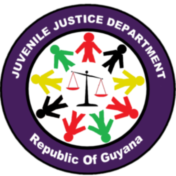Proceedings Against Juveniles

Notice of Arrest
If a juvenile is arrested and held in custody awaiting his or her appearance in court, the arresting officer must, within twenty four hours of the arrest, give a written notice to the parent of the juvenile and the Chief Probation Officer. The notice must state the place the juvenile is being held and the reason for the arrest. It must also include the name of the juvenile, the charge against the juvenile, and the time and place of appearance and a statement that the juvenile has the right to be represented by counsel. The notice must be served personally but failure to give a notice does not invalidate any subsequent proceedings. The court can also order a parent of the juvenile to attend court. This order must be made in writing.

Juvenile's right to Counsel
A juvenile has the right to retain and instruct counsel and to exercise that right personally. He or she must be told, without delay, by the police officer of this right and be given an opportunity to exercise it.
Before charging a Juvenile
The Director of Public Prosecutions shall conduct pre- charge screening before a juvenile is charged and must give written consent to a private individual who wishes to institute a charge against a juvenile.

Referral to Welfare
The court may refer the juvenile to the Chief Probation Officer for assessment at any stage of the proceedings to determine if he or she is in need of child welfare services.

When it comes to the age of a child
If a police officer reasonably believes that a child is responsible for something that would have been an offence had the child been older, the police officer can arrange for the child to remain with his or her parent. Where this cannot happen the police officer shall arrange for the child to be handed over to the Chief Probation Officer.

Aiding a child
Any person who aids, abets, counsels or procures a child in an instance where he or she would have committed an act which would be an offence if he or she was older then the person who so aids, abets, counsels of procures the child is guilty of that offence.
